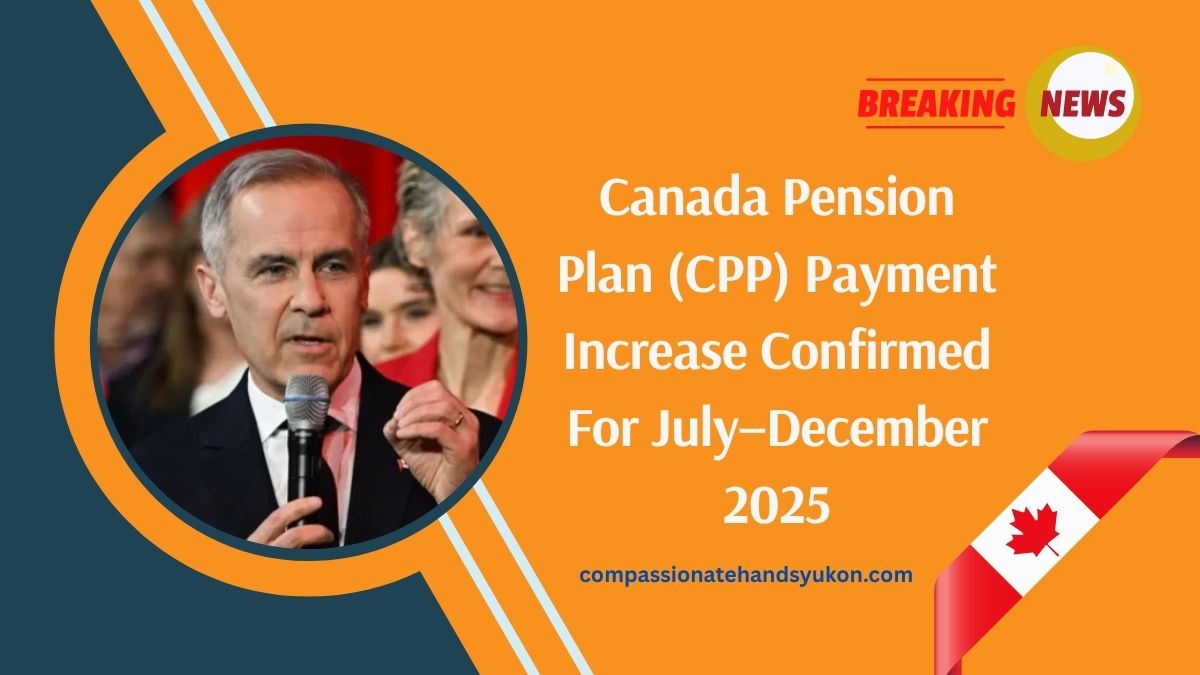Canadian retirees are set to receive a welcome financial boost as the Canada Pension Plan (CPP) increase has been confirmed for the second half of 2025.
With inflation still affecting essential costs like food, housing, and healthcare, this mid-year adjustment aims to provide extra support for seniors and others receiving CPP benefits.
Let’s dive into who qualifies, how much more recipients will receive, and the official payment dates for the remainder of the year.
Why the CPP Increase in 2025?
The Canada Pension Plan is a monthly taxable benefit designed to replace part of your income after retirement. Every year, CPP benefits are reviewed and adjusted according to the Consumer Price Index (CPI) to keep pace with inflation.
Due to the continued rise in the cost of living, especially in housing and groceries, the government has opted for a higher-than-usual adjustment from July to December 2025.
This increase is part of a government initiative to stabilize retiree income and reduce financial stress for those on fixed pensions.
New CPP Payment Amounts for July–December 2025
The Canada Revenue Agency (CRA) has released the updated payment figures for the various CPP benefits:
| Benefit Type | Previous Monthly Avg | New Monthly Avg (Jul–Dec 2025) |
|---|---|---|
| CPP Retirement Benefit | $772 | $832 |
| Maximum Retirement | $1307 | $1382 |
| CPP Disability Benefit | $1137 | $1195 |
| Survivor Benefit (Avg) | $705 | $740 |
This means most recipients will see a monthly increase between $60 and $75, depending on their past contributions and benefit type.
Who Is Eligible for the Increased CPP Payment?
You’re eligible for the updated CPP rates if you meet these conditions:
- Currently receiving CPP benefits
- Made at least one valid CPP contribution
- Aged 60 or older
- Canadian citizen or legal resident
There’s no need to reapply or fill out any additional forms. The increase is automatic, and funds will be directly deposited or mailed according to your selected payment method.
CPP Payment Dates from July to December 2025
Here is the full CPP payment schedule for the second half of 2025:
| Month | Payment Date |
|---|---|
| July 2025 | July 29, 2025 |
| August 2025 | August 28, 2025 |
| September 2025 | September 25, 2025 |
| October 2025 | October 29, 2025 |
| November 2025 | November 27, 2025 |
| December 2025 | December 20, 2025 |
Direct deposit recipients will receive their CPP on the exact date listed. Cheque recipients may need to allow a few extra business days.
What Should Pensioners Do Now?
To ensure there are no delays in receiving your increased pension amount, here are a few important steps:
- Update your direct deposit info if your bank account has changed
- Check your CRA My Account regularly for updated statements
- Keep track of payment dates to verify timely deposits
- Call Service Canada if payments are delayed beyond five business days
These simple steps will help you stay on top of your CPP benefits as the new rates take effect.
A Helpful Boost for Retirees in 2025
The CPP increase for July–December 2025 demonstrates a strong commitment from the government to help Canada’s senior population handle the rising cost of living.
While the increase may not solve every financial challenge, it does provide a much-needed cushion and underscores the importance of adjusting pensions in line with inflation.
With the confirmed CPP increase from July to December 2025, retirees and other eligible Canadians can expect higher monthly payments, helping them better manage everyday expenses.
Keep your information up to date and stay informed through your CRA My Account for the latest on your pension.
FAQs
Will the CPP increase apply to new applicants after July 2025?
Yes, new eligible CPP recipients after July will also receive the updated amounts based on their contribution records.
Do I need to apply to receive the CPP increase?
No. The increase is automatically applied to all eligible recipients; no application is necessary.
Is the CPP increase taxable?
Yes, CPP payments, including the increased amounts, are taxable income and must be reported on your annual tax return.
